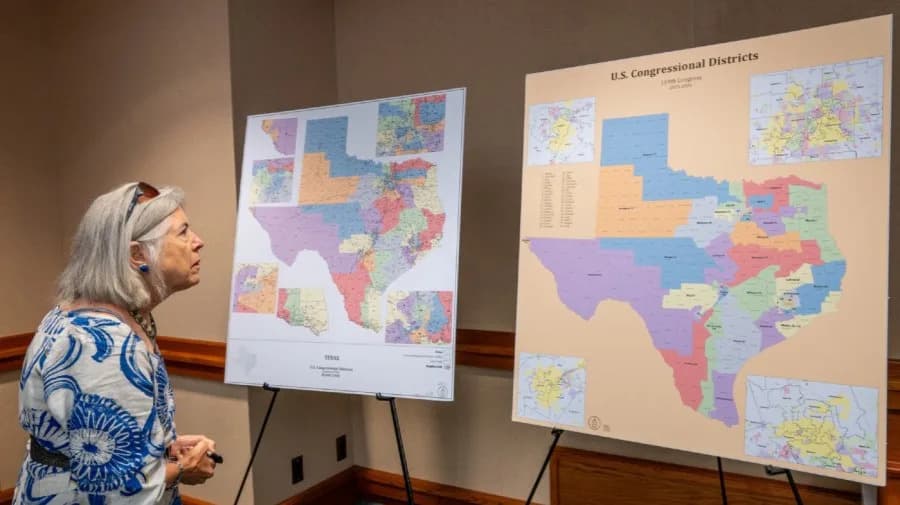The GOP effort to redraw congressional maps mid‑decade, championed by President Trump to gain seats — notably five in Texas — has encountered legal defeats and political pushback, and may backfire. A federal court struck down Texas’s map while California voters approved a Democratic plan that could net five seats, potentially offsetting Republican gains. Mixed outcomes in states such as North Carolina, Missouri, Kansas and Indiana, plus mounting litigation, mean the strategy is unpredictable and could ultimately cost Republicans more than it gains.
Trump’s Mid‑Decade Redistricting Gamble Could Backfire and Cost the GOP Seats

President Donald Trump urged Republican officials this summer to redraw congressional maps mid‑decade, insisting the GOP was entitled to additional conservative seats — notably five in Texas. What was presented as a straightforward plan to shore up Republican control of the U.S. House has become a messy, legally fraught campaign that may end up producing gains for Democrats instead.
Legal setback in Texas and countermoves in blue states
A federal court panel recently struck down the new Texas congressional map, undercutting a key element of the GOP strategy. At the same time, California voters approved a Democratic plan engineered to win five additional House seats. If legal challenges to the California map fail while Texas remains tied up in court, the two moves could effectively cancel each other out or even produce a net advantage for Democrats.
Redistricting is complicated, decentralized and political
Redrawing districts is handled state by state and must navigate a web of legal rules, court precedents and local political incentives. Lawmakers who control maps often balance protecting incumbents, representing local communities and responding to business interests — motivations that do not always align with pure partisan advantage. Aggressive gerrymanders also invite retaliatory efforts from the opposing party, raising the stakes and the risk of long litigation.
Mixed results so far
The push for mid‑decade redraws has produced uneven outcomes. Republicans may have gained a favorable seat in North Carolina and urged Missouri to revise its map to reduce Democratic representation, though that plan faces challenges and a possible referendum. In contrast, Republican leaders in Kansas and Indiana declined to pursue aggressive redraws to eliminate swing or Democratic‑leaning districts. Meanwhile, a judge in Utah recently ordered one seat to be made more Democratic, showing litigation can swing outcomes unpredictably.
Political and personal costs
The campaign has generated backlash inside the GOP. Some incumbents warn that radical mid‑decade changes can create so‑called dummymanders that spread opposing voters in ways that eventually make vulnerable seats for the party in power. Several Republican and Democratic lawmakers resisted mid‑decade redraws in their states for that reason. The fight has also escalated beyond policy debates: after a public clash with an Indiana lawmaker who resisted redistricting pressure, that lawmaker was reportedly targeted in a swatting incident, highlighting how heated and dangerous the dispute has become.
Why Democrats may respond and what it means ahead
Many blue states use independent redistricting commissions precisely to reduce partisan manipulation. California’s recent vote to install a partisan map has energized Democrats to consider similar measures elsewhere, with Virginia and Colorado mentioned as potential next steps. If more states move to partisan mid‑decade redraws, Republicans could face significant losses: in the 2021 cycle nonpartisan commissions drew many districts that favored Democrats far more than they favored Republicans.
Takeaway
What began as a presidential push for quick partisan gains has evolved into a high‑stakes gamble. With litigation pending, appeals likely to reach the Supreme Court, and both parties exploring countermeasures, the mid‑decade redistricting fight could leave neither side fully satisfied and may ultimately cost Republicans seats they sought to secure.
Experts and lawmakers quoted in the original reporting include Rick Hasen, Gavin Newsom, Kevin Kiley, Pete Sessions, Jonathan Cervas and Greg Goode.
Help us improve.




























